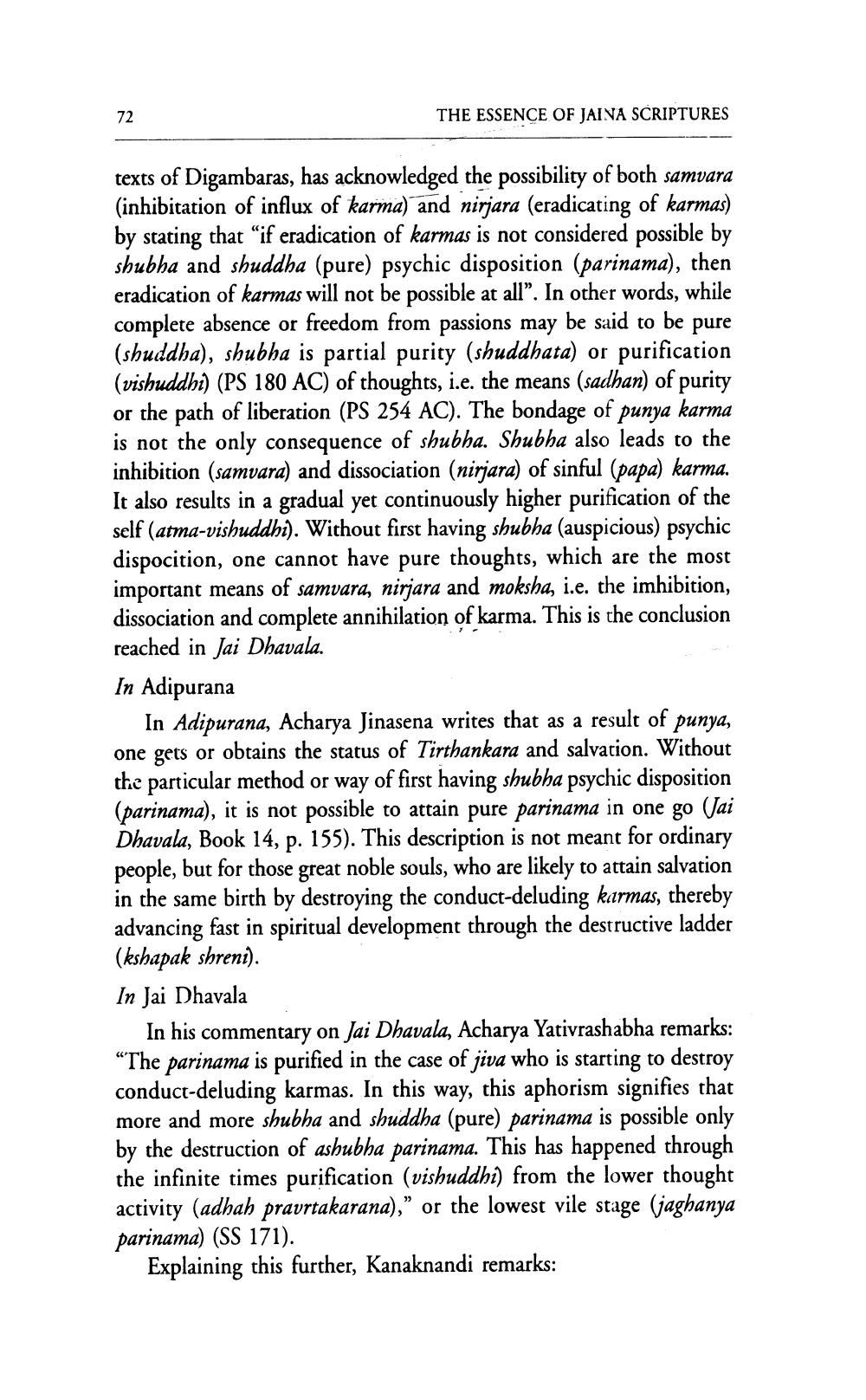________________
72
THE ESSENCE OF JAINA SCRIPTURES
texts of Digambaras, has acknowledged the possibility of both samvara (inhibitation of influx of karma) and nirjara (eradicating of karmas) by stating that "if eradication of karmas is not considered possible by shubha and shuddha (pure) psychic disposition (parinama), then eradication of karmas will not be possible at all". In other words, while complete absence or freedom from passions may be said to be pure (shuddha), shubha is partial purity (shuddhata) or purification (vishuddhi) (PS 180 AC) of thoughts, i.e. the means (sadhan) of purity or the path of liberation (PS 254 AC). The bondage of punya karma is not the only consequence of shubha. Shubha also leads to the inhibition (samvara) and dissociation (nirjara) of sinful (papa) karma. It also results in a gradual yet continuously higher purification of the self (atma-vishuddhi). Without first having shubha (auspicious) psychic dispocition, one cannot have pure thoughts, which are the most important means of samvara, nirjara and moksha, i.e. the imhibition, dissociation and complete annihilation of karma. This is the conclusion reached in Jai Dhavala.
In Adipurana
In Adipurana, Acharya Jinasena writes that as a result of punya, one gets or obtains the status of Tirthankara and salvation. Without the particular method or way of first having shubha psychic disposition (parinama), it is not possible to attain pure parinama in one go (Jai Dhavala, Book 14, p. 155). This description is not meant for ordinary people, but for those great noble souls, who are likely to attain salvation in the same birth by destroying the conduct-deluding karmas, thereby advancing fast in spiritual development through the destructive ladder (kshapak shreni).
In Jai Dhavala
In his commentary on Jai Dhavala, Acharya Yativrashabha remarks: "The parinama is purified in the case of jiva who is starting to destroy conduct-deluding karmas. In this way, this aphorism signifies that more and more shubha and shuddha (pure) parinama is possible only by the destruction of ashubha parinama. This has happened through the infinite times purification (vishuddhi) from the lower thought activity (adhah pravrtakarana)," or the lowest vile stage (jaghanya parinama) (SS 171).
Explaining this further, Kanaknandi remarks:




